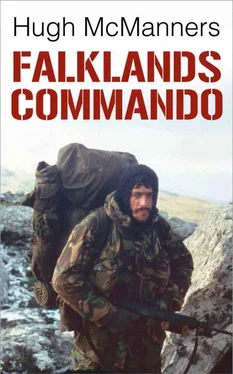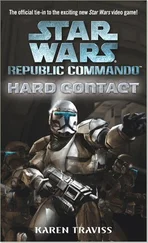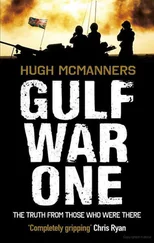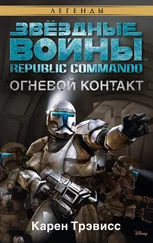Hugh McManners - Falklands Commando
Здесь есть возможность читать онлайн «Hugh McManners - Falklands Commando» весь текст электронной книги совершенно бесплатно (целиком полную версию без сокращений). В некоторых случаях можно слушать аудио, скачать через торрент в формате fb2 и присутствует краткое содержание. Город: London, Год выпуска: 2014, ISBN: 2014, Издательство: Nightstrike Publishing, Жанр: nonf_military, Биографии и Мемуары, на английском языке. Описание произведения, (предисловие) а так же отзывы посетителей доступны на портале библиотеки ЛибКат.
- Название:Falklands Commando
- Автор:
- Издательство:Nightstrike Publishing
- Жанр:
- Год:2014
- Город:London
- ISBN:978-0-992-81540-0
- Рейтинг книги:4 / 5. Голосов: 1
-
Избранное:Добавить в избранное
- Отзывы:
-
Ваша оценка:
- 80
- 1
- 2
- 3
- 4
- 5
Falklands Commando: краткое содержание, описание и аннотация
Предлагаем к чтению аннотацию, описание, краткое содержание или предисловие (зависит от того, что написал сам автор книги «Falklands Commando»). Если вы не нашли необходимую информацию о книге — напишите в комментариях, мы постараемся отыскать её.
Falklands Commando — читать онлайн бесплатно полную книгу (весь текст) целиком
Ниже представлен текст книги, разбитый по страницам. Система сохранения места последней прочитанной страницы, позволяет с удобством читать онлайн бесплатно книгу «Falklands Commando», без необходимости каждый раз заново искать на чём Вы остановились. Поставьте закладку, и сможете в любой момент перейти на страницу, на которой закончили чтение.
Интервал:
Закладка:
This wonderful Brigade Staff idea was the quintessential total logistic nightmare. The detailed planning and mounting of special operations cannot be done adequately from slit trenches in the pouring rain.
The FO1 solution to this last problem was to pack our gear into waterproof bags and arrange it in the sort of order in which we thought we might need it. This however was actually impossible, as we had no idea what ops might be planned.
But in the end this dilemma was pre-empted by the SBS planning ops that would get us off the ships and into the field for as long as possible. 3 Commando Brigade would soon be breaking out of the beachhead, with us pushing forward in front.
Outside of my little world and its problems, other people were extremely busy. 2 Para were still fighting at Darwin and Goose Green, 45 Commando were getting towards the end of their long yomp to Douglas, and 3 Para were going very fast towards Teal Inlet Settlement.
The future plan was for 3 Commando Brigade to move to Teal. Already an SBS team had completed their beach recces and were moving back westwards to meet 3 Para and either guide them in, or tell them where the enemy were so a battalion attack could be made.
The SBS were very busy too. My friend from Oxford University Lieutenant David Heaver was getting ready to move his complete troop in Rigid Raiders to Green Island at the southern head of Salvador Waters, to prepare for a move of the entire 3 Commando Brigade eastwards. David’s operation deep into the northern flank was a master class in covert boat work and navigation, achieved without detection, moving through very tricky waters at night.
Another SBS troop were warned to start the lengthy preparations for mounting attacks on Argentine shipping in Port Stanley harbour. This is a more traditional SBS task, involving a drop-off from ship, submarine or canoe, a long, approach surface swim by compass, then an underwater compass swim to place limpet mines on the hull of the target ship. This is done at night and requires very great diving skill and tremendous stamina, as well as precise navigation and single-minded courage.
Operation Brewers Arms Map
FO1 were to go with Lieutenant Andy Ebbens and his troop of three four-man recce teams and a small HQ, for a minimum of ten days, in which we would infiltrate the Mount Brisbane area north of Stanley, and clear it south to Berkeley Sound. Once done, the way would be clear for crossing the water and getting on to the high ground immediately north of Stanley. This was to be called Operation Brewers Arms.
The crazy idea of putting all our stores ashore was still hanging over our heads like an unthinkable nightmare. In the end, the orders actually to do it were ignored, because it was just too difficult. We had tons of fragile gear, plus a huge pile of different types of ammunition. The gear alone less ammo was 130 pallet loads. Without being on the ship, our casualty evacuation and radio communications problems would have been insurmountable.
We had to have a secure base from which to plan, monitor operations and recover to afterwards, not to mention preparing for the next mission. And so we made a firm decision to ignore the problem and disregard the order, then ‘Lo and Behold’, nothing happened and the problem went away.
On shore there was great activity, much shifting of kit, trench digging and confusion. The Argie Air Force managed to put a bomb into the BMA (the Brigade Maintenance Area) killing four and injuring others. Another bomb went into the meat-packing factory being used as the MDS (the Main Dressing Station hospital), which thankfully failed to go off. The surgeons continued operating and the bomb-disposal officer set up his sleeping-bag next to it, to boost the morale of those who doubted him when he declared it safe.
Once we’d been warned for Operation Brewers Arms (so named after Andy Ebben’s favourite pub in Poole, and ignoring the MoD rule of using the next deeply-boring name on their random names list [11]) the mucking about stopped. We were even able to go ashore for a congenial range shooting day, zero’ing our weapons.
We left Intrepid by LCM early on a beautiful, sunny morning, although very cold. As we motored through the calm waters of San Carlos, the coxswain received an air-raid warning over his radio. We cocked our weapons and angled them 45 degrees upwards against the side of the landing-craft and watched the horizon. Yet again Argie jets screamed in over the hillsides, skimming the water, desperately dodging the missiles and gunfire from the ships.
The helicopters, busy ferrying supplies ashore, took emergency cover in valleys and re-entrants around the anchorage, sitting tucked into the folds in the ground as far as they could go with engine and rotors ‘burning and turning’. Our coxswain, who by this stage had spent several days running from ship to shore during air raids, grinned at us and steered even closer to the shore than before. This time we did not manage to ‘bag’ anything.
We landed at the rickety-looking jetty at San Carlos Settlement, which was a hive of rain-soaked preparation. Lines of troops with rifles and submachine-guns slung over their shoulders, were carrying rolls of barbed wire up the very muddy farm tracks that ran between the weatherboard farmhouses. Others carried filled sandbags to trench positions under construction everywhere. Near the water’s edge a series of elaborate entrenchments with sandbagged roofs and galvanised-iron sides bristled with GPMGs.
We waded through thick mud past tractor sheds and the low palisade fences of the corrugated-iron-roofed houses. Tractors with trailers piled high with barbed wire, metal picket stakes and cheerful muddy soldiers hanging on to the sides, moved busily to and fro in the mire.
Behind the settlement the hillsides were dotted with soldiers, stripped to their vests and shirts, digging like navvies into the peat; familiar faces, begrimed and sweaty. They’d spent their first day ashore being moved from one defensive position to another, having to dig in afresh each time. Their bergens, left on the ships during the initial landings, had failed to reach them and they’d spent several very cold nights out without sleeping-bags or shelter. It was hardly surprising everyone was keen to get on with the war.
I spoke to some of the Falkland Islanders, shy people with an old-fashioned look to them, whose reticence reminded me of Mennonites I’d met in Belize. They’d been delighted but not surprised at the landing, and were quite sure they’d soon be able to shop again in Stanley. One chap said he hardly ever went there, but would make a point of visiting when it was all over.
After announcing our presence to the HQ of 3 Para, who were ensconced with their radio-sets in an outhouse of one of the farms, we were shown a small valley near the water’s edge where we could fire our weapons.
It’s essential to ‘zero’ a weapon, adjusting the sights so that what you see through the aperture when you pull the trigger is what you hit. It had not been possible to do this accurately on the ship, and even a small knock can upset the adjustment. The high-velocity Armalites that most of us carried are not really so critical, but the snipers, with their heavy, wooden-stocked rifles and telescopic sights, needed to spend some time on this task. The process of firing then adjusting (using a fine screwdriver) was repeated until perfect. We gathered up the spent brass, then each sniper carefully put his weapon back into its wooden case and we left.
On the way back down to the jetty I bumped into a cheerfully familiar figure. Captain Rod Jenkins of 29 Commando Regiment who, prompted by inquiries as to his health, regaled me with the story of how he’d gone out with shovel and rifle to attend a call of nature, but while so engaged had heard strange noises, and finished up by capturing a stray Argentinean officer. He confessed that this had not been achieved without a little mutual embarrassment. It was a day out for us, with beautiful, sunny weather and a couple of carefree hours on the range.
Читать дальшеИнтервал:
Закладка:
Похожие книги на «Falklands Commando»
Представляем Вашему вниманию похожие книги на «Falklands Commando» списком для выбора. Мы отобрали схожую по названию и смыслу литературу в надежде предоставить читателям больше вариантов отыскать новые, интересные, ещё непрочитанные произведения.
Обсуждение, отзывы о книге «Falklands Commando» и просто собственные мнения читателей. Оставьте ваши комментарии, напишите, что Вы думаете о произведении, его смысле или главных героях. Укажите что конкретно понравилось, а что нет, и почему Вы так считаете.












